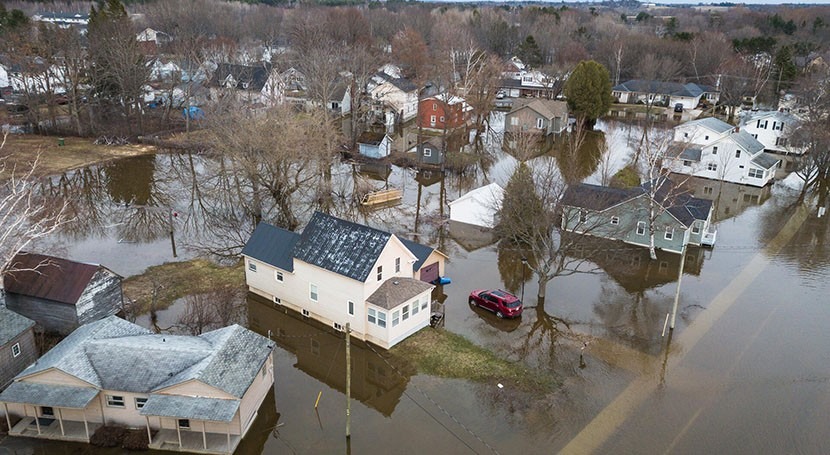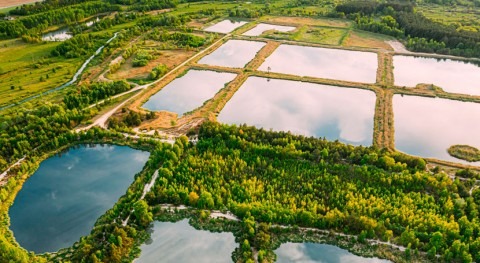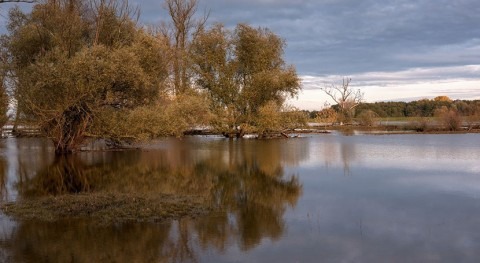The need to limit flood risk in Canada is urgent, with approximately 1.5 million homes, representing 10 per cent of the Canadian residential housing market, in high-risk zones where they are ineligible for flood insurance. A new CSA Group report, authored by the University of Waterloo Intact Centre on Climate Adaptation, provides practical guidance for federal, provincial, local, and Indigenous governments to tackle river flooding.
Nature can offer cost-effective solutions to limit flood risk, for example, communities can be protected downstream by restoring wetlands and using floodplains to soak up, store and slow down water upstream. Historically, flood management techniques largely relied on built infrastructure solutions, such as flood walls, dikes, and river channel modifications, to control natural processes. However, as large-scale flooding in British Columbia demonstrated in 2021, these structures can negatively impact river systems and fail, leaving towns and homeowners underwater. In contrast, nature-based flood solutions provide benefits for people and nature and are often self-maintaining.
"We are seeing increased awareness of the need to work with, rather than against nature, in tackling flooding in Canada," said Joanna Eyquem, lead author of the new report and managing director, Climate Resilient Infrastructure, Intact Centre on Climate Adaptation. "However, to deliver these flood solutions, we need to work at the scale of natural systems, which in the case of rivers is the watershed."
Based on the advice of experts, the report makes three recommendations:
- Develop consistent provincial approaches to integrated watershed management. Canada has best practices for watershed management that support nature-based solutions in some provinces. However, approaches vary significantly between provinces. Ontario is the only province where watershed-scale organizations, Conservation Authorities, have a legal mandate that combines river flooding, erosion, and nature-based conservation. This can serve to inform other provinces.
- Direct funding for river flood management to high-risk watersheds. Currently, funding is often directed to municipal governments that may not have the jurisdiction to implement nature-based solutions at the scale of the watershed. Going forward, projects funded at a local scale should be part of a watershed flood strategy.
- Routinely consider nature-based solutions for river flood and erosion management routinely alongside built infrastructure. Nature-based solutions should be the default choice, and grey solutions should only be applied when it is demonstrated that they are superior in providing benefits to people and nature over the long term.
The report also identifies how future standards could support the implementation of the three recommendations, including supporting consistent approaches to watershed management planning, selecting flood risk options and using nature-based solutions that would enhance and support existing standards to mitigate flood risk.
"CSA Group is excited to publish this latest report as we continue focused efforts to address urgent flood risks across the country with new national standards and research," said Michael Leering, director, Environmental and Business Excellence, CSA Group. "This research supports the addition of new nature-based solutions standards that enhance an already robust set of existing standards to mitigate flood risk."
The report's release is timely as the Government of Canada looks to define the role of the new Canada Water Agency and finalize the National Adaptation Strategy. Establishing a watershed approach to tackle river flooding could play a key role for the new agency and be a cost-effective complement to the regional coastal resilience approach that was announced with the strategy in November 2022.
With flood risk rising and atmospheric rivers flowing stronger, the time to implement nature-based flood risk solutions is now.



















